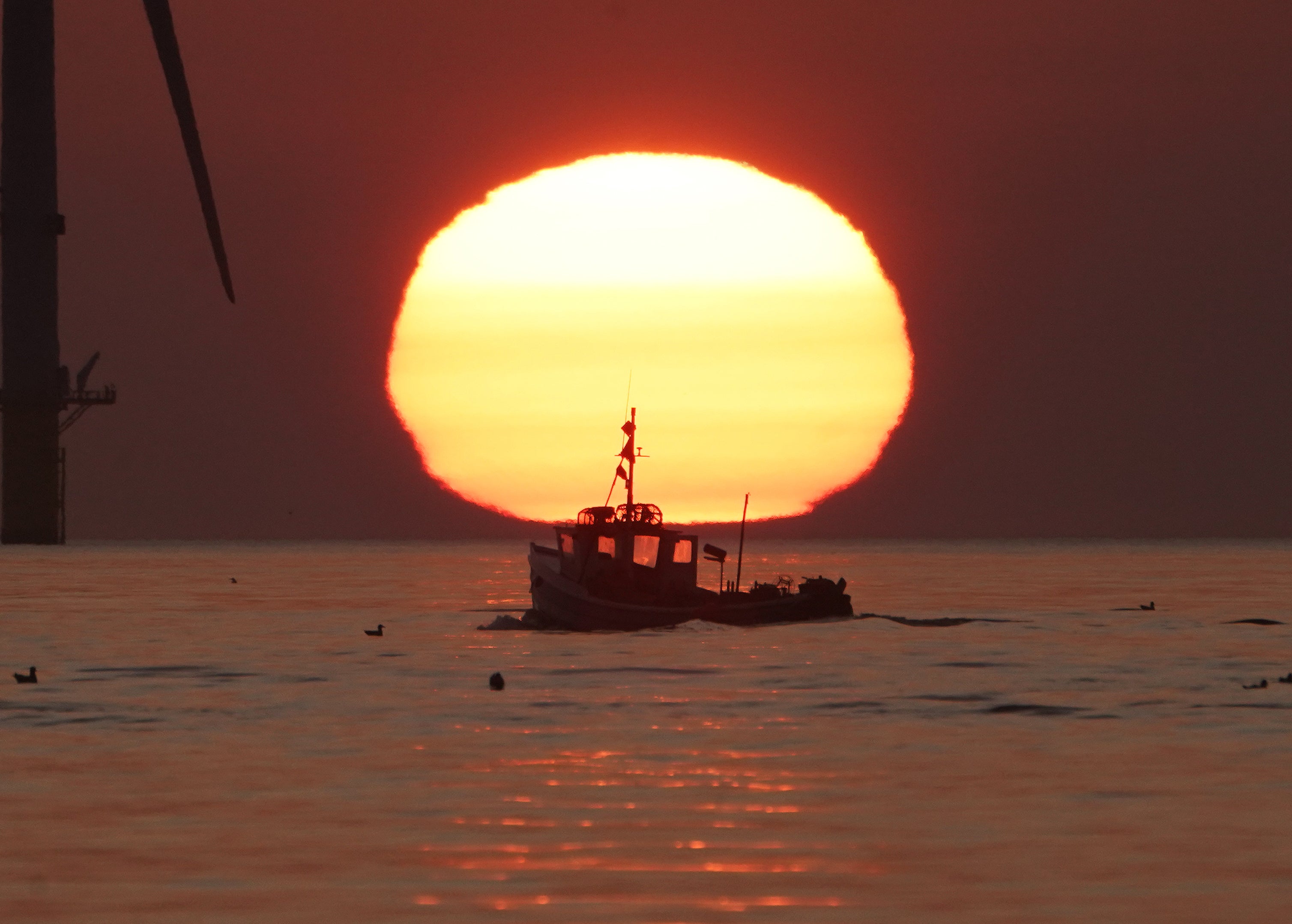Greenpeace drops boulders in North Sea conservation zone to prevent illegal fishing
Environmental activists have taken preserving a marine reserve into their own hands

Your support helps us to tell the story
From reproductive rights to climate change to Big Tech, The Independent is on the ground when the story is developing. Whether it's investigating the financials of Elon Musk's pro-Trump PAC or producing our latest documentary, 'The A Word', which shines a light on the American women fighting for reproductive rights, we know how important it is to parse out the facts from the messaging.
At such a critical moment in US history, we need reporters on the ground. Your donation allows us to keep sending journalists to speak to both sides of the story.
The Independent is trusted by Americans across the entire political spectrum. And unlike many other quality news outlets, we choose not to lock Americans out of our reporting and analysis with paywalls. We believe quality journalism should be available to everyone, paid for by those who can afford it.
Your support makes all the difference.Greenpeace campaigners have begun dumping giant boulders in parts of the North Sea to obstruct fishing in protected areas.
The environmental group accuses boats of destroying habitats by dragging heavy nets across the sea floor to catch deep-lying fish, a practice known as trawling.
Greenpeace has insisted that the granite rocks, which weigh up to three tonnes, will pose no threat to wildlife or safety, but will stop trawlers from operating.
Whilst it is legal to fish in the conservation zone, called the Dogger Bank – about 100km off the east coast of England – the activists say that they have caught large vessels hiding their contentious methods by switching off their identification systems, which would be illegal in most cases.
“Our Government has utterly failed to protect the Dogger Bank and all our marine protected areas from destructive industrial fishing,” Greenpeace oceans campaigner, Chris Thorne, said from aboard the boat dropping the boulders.
“How can you continue to allow trawlers to plough the seabed in a protected area designed specifically to protect the seabed? Allowing trawling is equivalent to allowing bulldozers to plough through a protected forest. This must stop.”
Greenpeace challenged the Government to take more steps to ensure that the conservation zone is enforceable and threatened to keep putting down boulders until the reserve is properly protected.
The Environment department said that the Government would put sustainable practices at the heart of its fishing strategy after the Brexit transition ends.
A spokesperson said: “We have already set up a ‘blue belt’ of protected waters nearly twice the size of England, and we propose new powers to better manage and control our marine protected areas.
“The Common Fisheries Policy currently restricts our ability to implement tougher protections, but leaving the EU and taking back control of our waters as an independent coastal state means we can introduce stronger measures.”


Join our commenting forum
Join thought-provoking conversations, follow other Independent readers and see their replies
Comments